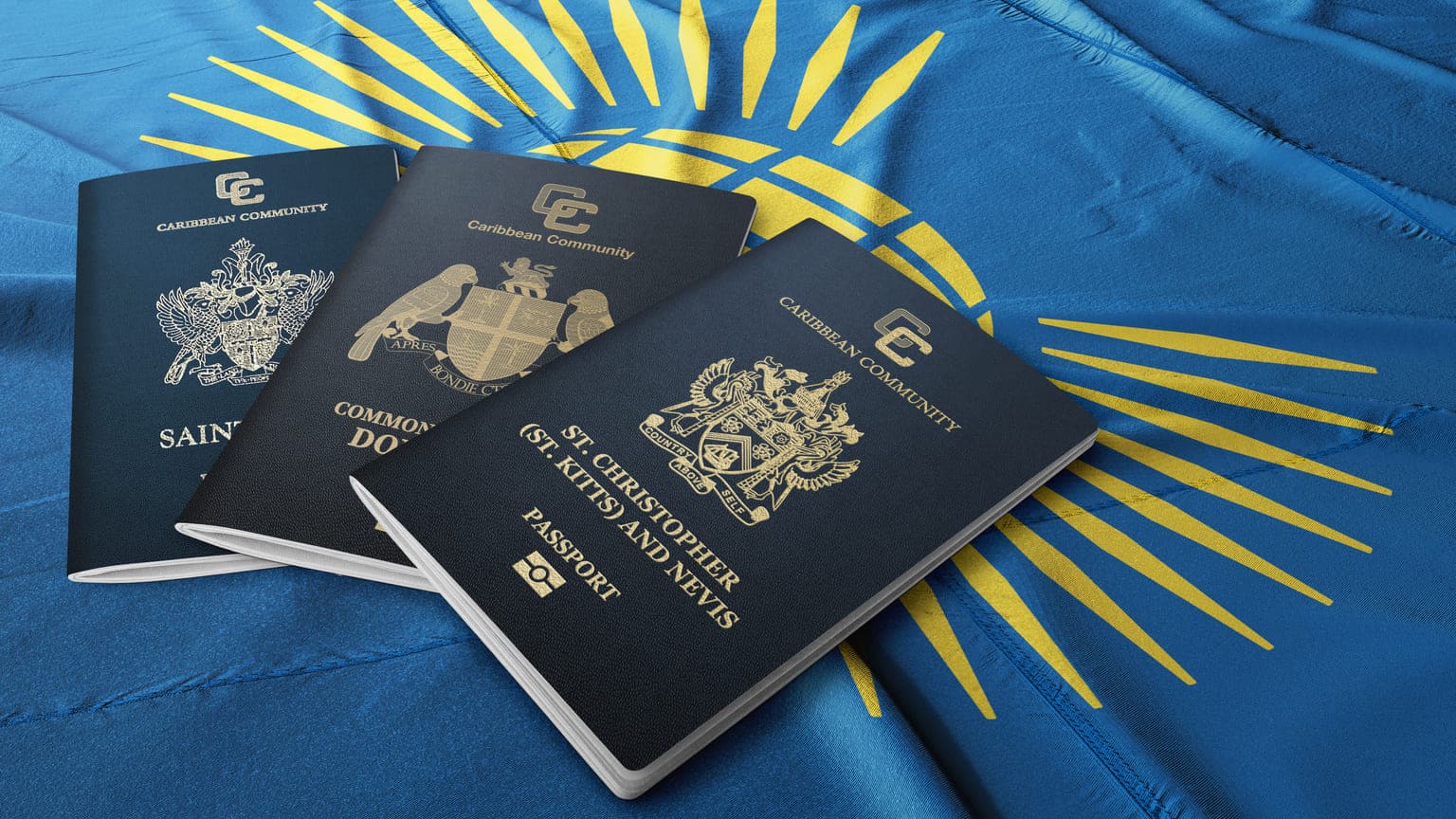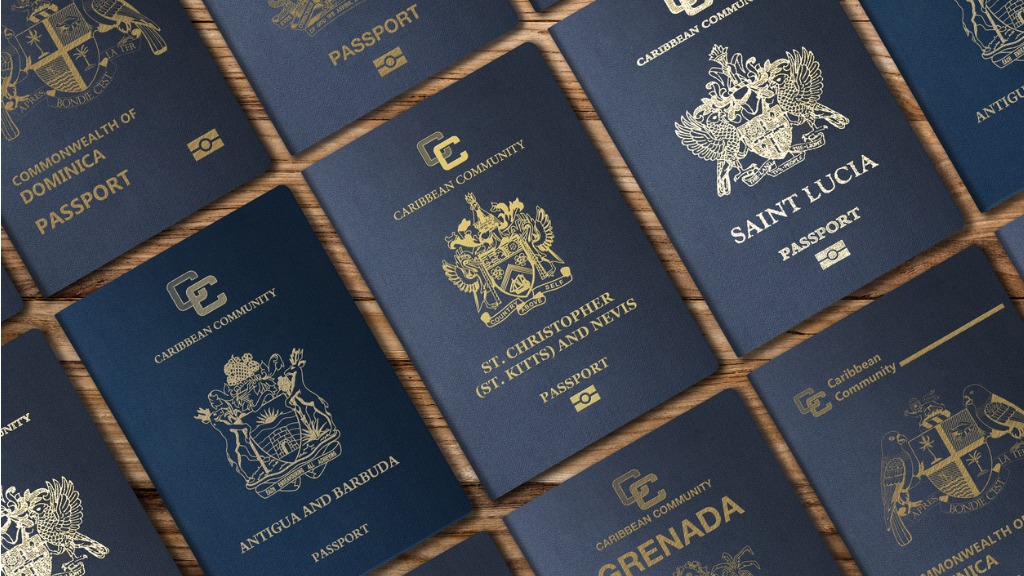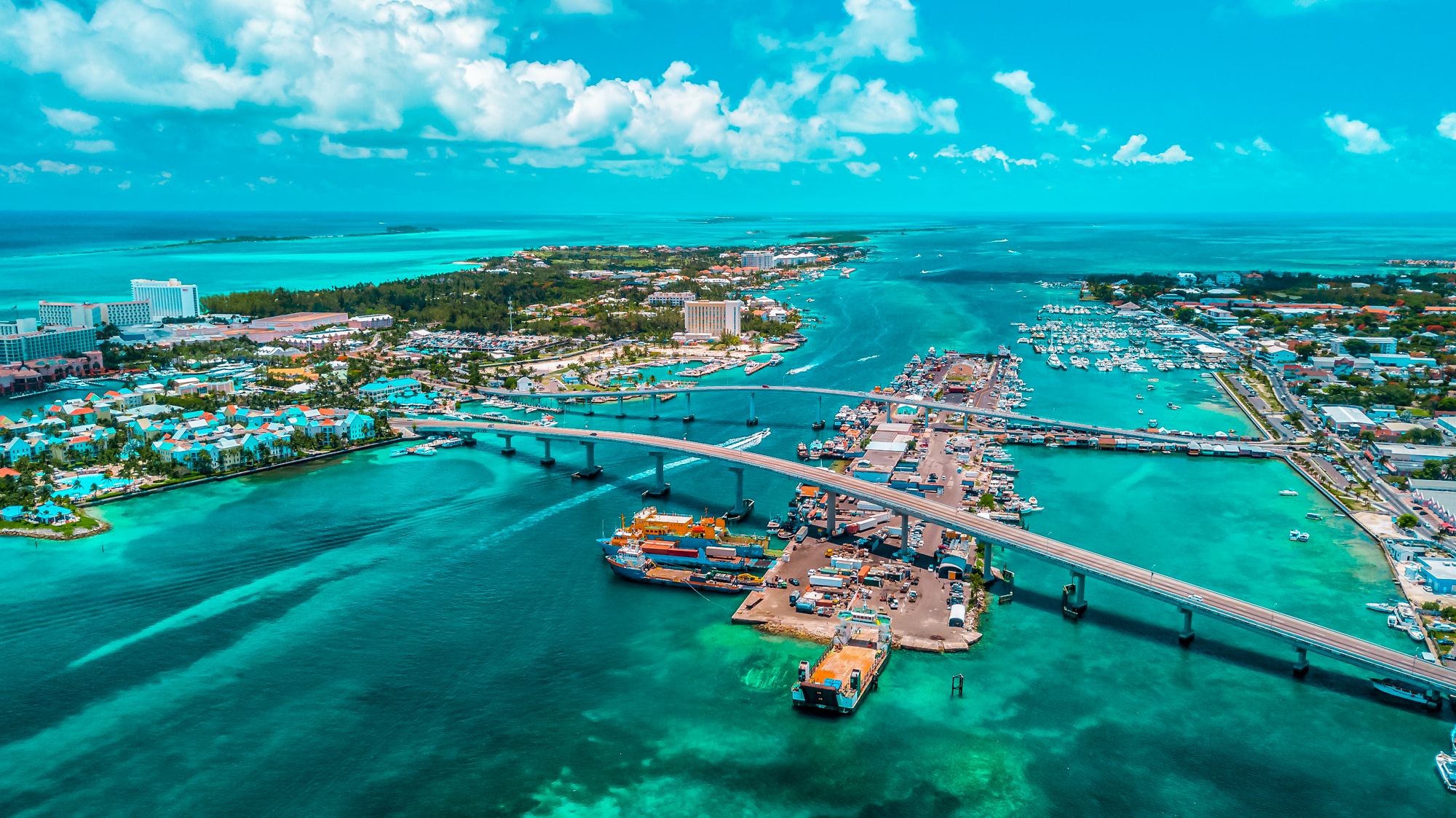Introduction
In an increasingly unpredictable world, the Caribbean stands out as one of the few remaining regions offering genuine stability, safety, and strategic opportunity. As political tension, economic uncertainty, and social unrest grow across Europe, Asia, the Middle East, and even parts of North America, the Caribbean remains largely shielded—characterized by democratic governance, regional cooperation, and geopolitical neutrality.
For globally mobile entrepreneurs, families, and wealth planners, the Caribbean is more than a lifestyle destination. It’s a long-term strategy. It offers second citizenship, tax-efficient residency, and access to real estate, education, and wealth preservation tools—all supported by a regional infrastructure that encourages cross-border movement and economic integration.
One of the key instruments behind this mobility is the CARICOM Passport. Issued by 15 member states within the Caribbean Community, the CARICOM Passport simplifies regional travel, work eligibility, and long-term relocation planning. For investors who secure citizenship through approved programs, it enables seamless access across the Caribbean, with added benefits under frameworks like the OECS and the CARICOM Single Market and Economy (CSME).
As global demand for second citizenship, residency diversification, and offshore flexibility grows, the Caribbean continues to emerge as a high-value, legally sound region for international families seeking resilience, lifestyle, and long-term positioning.
What Is the CARICOM Passport?
The CARICOM Passport is a standardized travel document issued by CARICOM member states to their citizens. It is a tool for regional integration, supporting visa-free or visa-on-arrival travel within 15 participating Caribbean countries. Citizens using this passport benefit from easier movement, reduced border friction, and alignment with regional labor and trade policies.
While the document itself is issued by individual nations, its format and privileges are unified. It includes both the issuing country’s coat of arms and the CARICOM insignia, helping border officials throughout the region instantly recognize the traveler’s status.
Only full citizens of CARICOM member states—either by birth, descent, or naturalization (including via investment)—are eligible. Residents and permit holders are not entitled to the passport or its associated regional privileges.
Benefits of the CARICOM Passport

A Caribbean passport issued by a CARICOM member state goes far beyond basic international travel. It plays a central role in promoting regional unity, enhancing intra-Caribbean mobility, and unlocking cross-border economic opportunity. For global citizens and investors, this document serves as both a symbol of belonging and a practical tool for seamless regional access.
Facilitating Free Movement and Regional Residency
The Caribbean passport allows you to travel, reside, and—in many cases—work across member countries under the CARICOM Single Market and Economy (CSME). Citizens of countries that are also members of the Organization of Eastern Caribbean States (OECS), including Antigua and Barbuda, Dominica, Grenada, St. Lucia, and St. Vincent, enjoy even more robust integration. These passport holders can relocate and establish residency in neighboring OECS countries without needing work permits or extended visa applications.
This free movement of people supports labor mobility, remote relocation, and family settlement, creating powerful options for those seeking long-term Caribbean integration.
Streamlined Regional Travel and Recognition
With a CARICOM passport, travelers benefit from simplified immigration procedures and often expedited lanes when moving between Caribbean countries. The standardized format and shared insignia help immigration officials across the region easily verify citizenship status, making cross-border travel more efficient and predictable.
Economic Participation and Market Access
Beyond movement, the Caribbean passport grants you legal status as a full economic participant. This includes the right to open bank accounts, acquire property, and access public services in other member states. For entrepreneurs, it enables company registration and cross-border operations with fewer licensing hurdles.
Supporting Investment Migration and CBI Benefits
For investors who gain citizenship through one of the region’s five CBI programs, the passport comes with even broader advantages. These include visa-free or visa-on-arrival access to over 140 countries worldwide, and the right to relocate within CARICOM and OECS without additional administrative burdens.
Reinforcing Legal Stability and Long-Term Security
Perhaps most importantly, a Caribbean passport connects you to a legally sound, English-speaking, politically stable region that adheres to democratic norms and rule of law. Most member states maintain independent judicial systems, stable currency regimes, and favorable legal protections for personal and business assets.
Key Benefits at a Glance:
-
Live and work in up to 15 CARICOM member states under the CSME framework
-
Permit-free relocation across OECS countries for deeper regional integration
-
Simplified border entry and faster processing within the Caribbean
-
Legal access to real estate markets, business infrastructure, and local services
-
Global visa-free travel (140–150+ countries) combined with regional economic rights
Building a Platform for Global Flexibility
Whether you are relocating your family, repositioning your assets, or simply diversifying your citizenship profile, a Caribbean passport offers more than symbolic value. It’s a vehicle for real freedom—one that unlocks regional access, long-term legal security, and strategic jurisdictional flexibility in a world where those qualities are increasingly rare.
CARICOM and OECS Free Movement Privileges

Understanding the free movement frameworks within the Caribbean is essential for anyone considering citizenship, residency, or investment in the region. While the CARICOM Passport is the entry point, the real value lies in the legal rights granted under two key regional agreements: the CARICOM Single Market and Economy (CSME) and the Organisation of Eastern Caribbean States (OECS).
Free Movement Under CARICOM
The CARICOM Single Market and Economy (CSME) allows qualified citizens of CARICOM member states to travel, reside, and work in other participating member states without the need for a traditional work visa. To do this, individuals must apply for a Certificate of Recognition of CARICOM Skills, which enables:
-
The right to seek and accept employment in another CARICOM country
-
Equal treatment under labor laws and workplace protections
-
Permission to relocate with eligible dependents
-
Access to basic services like healthcare and education in many host states
Implementation varies by country, and documentation requirements still apply.
Automatic Mobility Within the OECS
The Organisation of Eastern Caribbean States (OECS) goes further. Citizens of OECS countries (Antigua, Dominica, Grenada, St. Lucia, St. Vincent, Montserrat, St. Kitts) enjoy immediate and unrestricted rights to live, work, and establish residence in any other full member—no visa, permit, or skills certificate required.
Why This Matters for Investors
For CBI participants, OECS citizenship provides practical, multi-jurisdictional access. You can gain citizenship in one country, then legally reside and operate across six or more member states with no extra filings or delays. That kind of structural flexibility is rare—and extremely valuable.
Citizenship by Investment (CBI) Programs

The Caribbean offers five well-established Citizenship by Investment (CBI) programs that grant full legal citizenship and regional travel privileges. These programs are among the most efficient and respected in the world, offering direct access to second citizenship within three to six months.
St. Kitts and Nevis
St. Kitts and Nevis is home to the world’s first Citizenship by Investment program, established in 1984. Its longevity and reputation make it one of the most respected CBI offerings globally. With a $250,000 contribution to the Sustainable Island State Contribution (SISC) or a $400,000 real estate investment, applicants gain full citizenship in as little as 4–6 months.
More than just a passport, St. Kitts and Nevis offers one of the most livable environments in the Caribbean. Nevis, in particular, stands out for its high-end appeal and natural beauty. It’s home to Four Seasons Nevis—arguably the premier master-planned community in the Eastern Caribbean—featuring beachfront villas, luxury real estate, and one of the region’s most refined resort lifestyles. For investors seeking both security and a desirable second home, this market leads the pack.
Antigua and Barbuda
Antigua and Barbuda offers one of the most accessible family-focused CBI programs in the region, with updated pricing that includes a $230,000 donation to the National Development Fund (including processing fees) or $300,000 for a qualifying real estate investment. These options make it especially attractive for larger families looking for a cost-effective second citizenship route.
However, the country has a relatively limited inventory of CBI-approved real estate projects, which may affect resale and long-term value for property investors. Still, Antigua is an OECS member with strong regional access, and the twin-island state boasts excellent yachting infrastructure, international schools, and solid airlift to North America and Europe.
St. Lucia
St. Lucia offers a modern and flexible CBI program, with pricing starting at $240,000 (inclusive of government fees) for a single applicant via donation. Investors may also choose a $300,000 real estate option or invest in National Action Bonds starting at $300,000 (refundable after five years). The program typically delivers citizenship in 3–5 months and maintains a transparent and well-regulated due diligence process.
As a member of both CARICOM and OECS, St. Lucia offers strong mobility across the region. The island’s natural beauty, developing infrastructure, and expanding luxury real estate sector make it a growing favorite among investors looking for balance between accessibility and long-term upside.
Dominica
Dominica has earned a reputation as one of the most cost-effective and integrity-driven CBI programs in the Caribbean. Citizenship can be secured through a $100,000 donation or a $200,000 real estate investment, with processing timelines averaging 3–5 months.
But beyond the passport, Dominica is increasingly viewed as a frontier market on the rise. It offers exceptional opportunities for land banking, especially in large private estates, eco-lodges, and beachfront parcels. Though development is still catching up to more mature markets like St. Kitts and Antigua, investor interest is growing—and the island’s low-density, nature-rich landscape positions it well for sustainable luxury. This is one of the few places where you can still acquire prime coastal land under $2 per square foot.
Grenada
Grenada is often seen as one of the most strategic second passport jurisdictions due to its E-2 Treaty with the United States, allowing citizens to apply for a U.S. investor visa. Investors may obtain citizenship through a $150,000 donation or $220,000 in government-approved real estate.
The island also has an increasingly active real estate development scene, with boutique hotel projects, resort communities, and private villas on the rise. Grenada’s natural harbor, university sector, and connections to China and the U.S. give it a well-rounded economic profile, making it one of the most investment-ready destinations for Caribbean property development and long-term lifestyle planning.
Residency by Investment: British Overseas Territories (BOTs)

Anguilla
Anguilla offers residency via a $150,000 donation or $750,000 real estate investment, alongside a unique flat tax residency program that allows ultra-high-net-worth individuals to establish legal tax residency for $75,000 per year. This option is particularly attractive for clients seeking simplicity, privacy, and stability in a low-tax jurisdiction. Anguilla imposes no income, capital gains, or inheritance tax, making it one of the most efficient destinations for wealth preservation in the Caribbean. As a British Overseas Territory, it provides legal certainty under UK common law, and its boutique real estate market offers exclusivity without the density or pace of more developed jurisdictions.
Bermuda
Bermuda requires a $2.5 million investment for residency, typically in local real estate or economic development projects. While the territory does not currently provide a path to citizenship, it remains one of the most sophisticated offshore jurisdictions globally. With its highly regarded legal and financial systems, low crime rate, and polished infrastructure, Bermuda is ideal for individuals seeking a discreet and refined relocation option. It’s particularly suited for family offices, insurance executives, and professionals who value quality of life and institutional-grade stability over tax arbitrage.
Cayman Islands
The Cayman Islands offer long-term residency (up to 25 years) through a $1.2 million investment in developed real estate. Cayman is renowned for its zero-tax environment, high-end infrastructure, and business-friendly government. It is especially favored by hedge fund managers, crypto entrepreneurs, and international financiers looking for a safe, regulated jurisdiction with deep banking ties. While the residency does not convert into citizenship, the territory’s reputation, safety, and network of global service providers make it a leading choice for serious offshore structuring and lifestyle relocation.
Turks and Caicos
Turks and Caicos offers permanent residency via a $300,000 investment in real estate, with higher thresholds depending on property location. While BOTC and UK citizenship require long-term physical presence and naturalization, TCI’s luxury property market is thriving. With growing demand for marina access, resort developments, and residential communities, this territory is fast becoming one of the most sought-after lifestyle bases in the region. Investors benefit from a tax-neutral regime, white-sand beaches, and an English-speaking population—all under the legal framework of the United Kingdom.
Montserrat
Montserrat remains one of the most affordable and underdeveloped British Overseas Territories. It offers low-cost retiree residency and a clear path to BOTC citizenship after 10 years of legal residence. As a member of the OECS, eventual citizens also gain enhanced regional mobility. The island has untapped potential for eco-lodge development, agricultural land use, and boutique hospitality. For forward-thinking investors seeking a first-mover advantage in a slow-developing market, Montserrat is an intriguing option—quiet, stable, and full of long-term opportunity.
Residency by Investment: Independent Caribbean Nations

The Bahamas
The Bahamas offers one of the most robust and straightforward residency options in the region. Permanent residency is available to individuals who invest $750,000 or more in residential real estate. The country imposes no personal income tax, capital gains tax, or inheritance tax, making it a top-tier destination for wealth protection. Its close proximity to the United States and access to major international financial institutions further enhance its appeal.
Barbados
Barbados grants residency through special entry permits to high-net-worth individuals who invest in the local economy, most commonly through real estate or significant financial assets. The minimum investment threshold is typically $300,000, though requirements can vary. Particularly popular among Canadian and British investors, Barbados offers strong legal protections, a world-class treaty network, and direct flights to Toronto and London.
St. Vincent and the Grenadines
St. Vincent offers low-cost, low-visibility residency options, especially suited for retirees and independent professionals. While a Citizenship by Investment program has not yet been launched, there are ongoing rumors of future legislation. The country consists of 32 islands, including Mustique and Canouan, and is viewed by many as a well-situated frontier market with long-term development potential.
Conclusion
The Caribbean has evolved into far more than a seasonal escape or second-home market. For investors, entrepreneurs, and global citizens, it offers a highly strategic blend of freedom, mobility, and security. Whether you’re pursuing a second passport through a respected CBI program or seeking tax residency in a quiet British Overseas Territory, the region delivers powerful tools for personal and financial resilience.
What sets the Caribbean apart is the diversity of options within a compact geographic region. You can hold citizenship in an OECS country and own property across multiple islands. You can maintain tax residency in Anguilla while investing in development land in Dominica. You can build a long-term succession plan, giving your family global mobility and multi-jurisdictional access with minimal bureaucracy.
As the world becomes more volatile, the benefits of mobility, flexibility, and legal stability are no longer luxuries—they are necessities. The Caribbean offers these in a structure that is accessible, efficient, and internationally recognized. If you’re planning for the next decade—not just the next visa stamp—there is no better region to build from.






